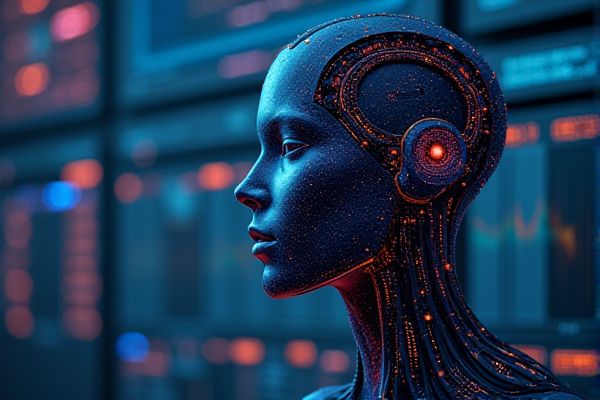
AI enhances music production by automating tasks such as mixing and mastering, leading to more efficient workflows. Tools powered by machine learning can analyze existing tracks to suggest chord progressions, melodies, or arrangements that fit a specific style. Composers use AI-generated samples and loops, providing fresh inspiration and creative possibilities. The integration of AI fosters collaboration between human artists and technology, resulting in innovative soundscapes and unique musical expressions.
AI usage in music production
Automated Mixing
AI-driven automated mixing offers a significant chance to enhance music production efficiency. Tools like LANDR provide musicians with quick mastering solutions, potentially saving both time and resources. These technologies can analyze audio tracks and optimize levels, EQ, and compression, making them accessible for those without extensive technical skills. Independent artists and small studios might particularly benefit from such advancements in a competitive music industry landscape.
AI-Driven Composition
AI usage in music production is becoming increasingly prevalent, offering composers new tools for creativity. AI-driven composition can analyze vast amounts of musical data, providing insights that could inspire innovative melodies and harmonies. For example, software like AIVA uses machine learning to compose original scores, enhancing the workflow for musicians. This technology presents a distinct advantage in generating unique sounds and ideas, allowing artists to explore unexplored genres.
Lyric Generation
AI can enhance music production by utilizing algorithms for sound synthesis and arrangement, potentially streamlining the creative process. In lyric generation, tools like OpenAI's GPT-3 can assist songwriters by suggesting themes and phrases, offering new avenues for creativity. This technology provides opportunities for artists to experiment with unique styles and genres. With proper application, musicians may find themselves inspired and more efficient in their work.
Sound Design and Synthesis
AI can enhance music production by optimizing workflows and providing creative suggestions. For instance, tools like AIVA allow composers to generate original scores, saving time on repetitive tasks. In sound design, machine learning algorithms can analyze audio patterns to create new sounds or modify existing samples. This technology offers musicians the chance to explore innovative sonic landscapes, potentially leading to unique compositions.
Mastering Assistance
AI in music production offers significant advantages in mastering assistance. Tools like LANDR, which utilize machine learning algorithms, can analyze audio tracks and provide recommendations for mastering adjustments. This technology can optimize sound quality and enhance tracks more efficiently than traditional methods. With AI, producers can save time while achieving professional-quality results, increasing their competitive edge in the music industry.
Drum Pattern Creation
AI tools in music production can streamline the drum pattern creation process, offering musicians new ways to experiment with beats. Software like Ableton Live includes AI-driven features that suggest rhythms and tempos based on user input. This can lead to discovering unique patterns that may not have been conceived manually. The advantage lies in enhanced creativity and efficiency, allowing artists to focus more on composition rather than tedious programming.
Vocal Processing
AI has the potential to revolutionize vocal processing in music production by streamlining tasks such as pitch correction and vocal tuning. Tools like Melodyne use AI algorithms to analyze and manipulate vocal tracks, enhancing their quality while saving time for producers. The ability to create harmonies and backing vocals through AI-generated suggestions could lead to innovative soundscapes in genres ranging from pop to electronic music. This technological advancement could also lower production costs, making professional-quality music more accessible to emerging artists and smaller institutions.
Real-Time Collaboration
AI tools in music production can enhance creativity by generating unique melodies and harmonies. Real-time collaboration platforms like Soundtrap allow musicians to work together from different locations, increasing the chances of diverse inputs. With AI-assisted mixing and mastering tools, the quality of production can improve significantly. Musicians may find that combining these technologies allows for more innovative and polished final products.
Genre Classification
AI can assist in music production by analyzing large datasets to classify genres more accurately. For instance, platforms like Spotify utilize AI algorithms to categorize tracks based on various features like tempo and melody. This technology offers producers the chance to identify trends and audience preferences, potentially increasing their reach. Enhanced genre classification can lead to better-targeted marketing strategies and optimized playlist placements.
Adaptive Music Systems
AI in music production can streamline the creative process by providing tools for generating melodies and harmonies automatically. Adaptive Music Systems utilize AI algorithms to tailor compositions based on listener preferences, enhancing personalized experiences. Artists using platforms like AIVA can benefit from rapid prototyping and innovative sound design. This integration may lead to a more efficient workflow and potentially fill gaps in traditional creative processes.
 techknowy.com
techknowy.com